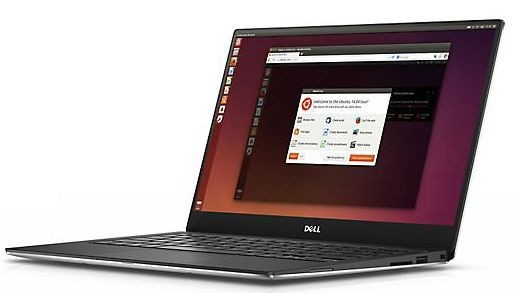By Ellen Fraser, | March 13, 2016

The XPS 13 Developer Edition is part of Project Sputnik that offers developers a powerful and thin XPS notebook running Linux.
Dell has announced that its Skylake-based Dell XPS 13 developer edition will be now available in the United States.
The XPS 13 Developer Edition laptop is also known as the Project Sputnik. This is the company’s idea to offer developers a powerful and thin XPS notebook running Linux. It was first launched more than three years ago and currently, it is now running on its 5th generation that combines the Ubuntu 14.04 with Intel’s Skylake processors, according to PC World.
Like Us on Facebook
It comes in three core i7 configurations. The new Dell XPS 13 developer edition laptops will feature 13.3-inch displace, 8 or 16GB of memory and depends on the configuration and up to 1TB of internal storage. In addition, there will be an option of 256GB and 512GB solid state drive as well. Dell also said that an i5 model with 8GB RAM, 256GB SSD, and 1920×1080 screen resolution non-touch display will be available as well.
The Developer Edition XPS 13s are somewhat different compared to Windows versions because they are using Intel Wi-Fi adaptors instead of Dell-branded parts. Project Sputnik lead Barton George says that the three models will have InfinityEdge display, with full HD and QHD+ versions, Ubuntu 14.04 LTS (Long Term Support) and all the important hardware drivers, tools and utilities that owners will need.
The LTS part of the platform is a branch of Ubuntu that Canonical supports for five years since its inception. Contrary to the standard version of the operating system, it is guaranteed that will receive updates for at least nine months. Dell decided that LTS will be a better alternative for their Project Sputnik devices because it is designed for professionals who want reliability than cutting-edge software features.
George also mentioned that Ubuntu 16.04 LTS with codename Xenial Xerus will make its public debut in April and the support is also planned well. Users who to make an upgrade are advised to follow Canonical's instructions. The Ubuntu 16.04 LTS changes will bring Linux 4.4, Python 3.5 and Golang 1.6.
In addition, there will be a range of Precision-branded workstations notebooks available that includes Precision 3510, 7510, and 7710, Ars Technica reported. It offers buyers option to choose between wide range of sizes, weights, and specifications. Precision devices feature configurable processor, storage, memory, CPU, and display.
-
Use of Coronavirus Pandemic Drones Raises Privacy Concerns: Drones Spread Fear, Local Officials Say

-
Coronavirus Hampers The Delivery Of Lockheed Martin F-35 Stealth Fighters For 2020

-
Instagram Speeds Up Plans to Add Account Memorialization Feature Due to COVID-19 Deaths

-
NASA: Perseverance Plans to Bring 'Mars Rock' to Earth in 2031

-
600 Dead And 3,000 In The Hospital as Iranians Believed Drinking High-Concentrations of Alcohol Can Cure The Coronavirus

-
600 Dead And 3,000 In The Hospital as Iranians Believed Drinking High-Concentrations of Alcohol Can Cure The Coronavirus

-
COVID-19: Doctors, Nurses Use Virtual Reality to Learn New Skills in Treating Coronavirus Patients











